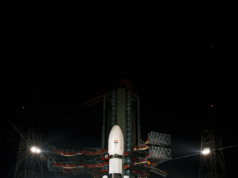NEW DELHI: An excerpt from a discussion with Ambassador Asoke Mukerji, India’s Former Permanent Representative to the United Nations and StratNews Global Associate Editor Amitabh P. Revi.
Watch the complete conversation here: https://www.youtube.com/watch?v=RmJUKSO8DDI&t=883s
Transcript:
There has to be greater awareness. I spent some time writing and speaking on this subject. There has to be a greater awareness of how the modern information society actually functions. Having negotiated the introduction of this technology into India, for example, now we have smartphones in our hands and we have information and communication technologies, which have made each smartphone into a more powerful platform than the most powerful computer 20 years ago. So how does this work? And I think that it’s important to understand that this technology and the use of this technology has been driven by a handful of multinational companies headquartered in the United States of America, which means that they operate under licenses given by the government of the United States of America. Now they operate in jurisdictions across the world. In countries which have opened their markets, they have become household names. In India, we always say Google this and Google that, but Google is an American company headquartered in the United States. So it follows the licenses given by the government of the United States. Now in cases of conflict and war, those of us who have negotiated had thought that technology and economics would be kept out of politics. But, the response in the Ukraine crisis has shown that all that people like us have a watch, to create, to make India a part of a global infrastructure can be weaponised. And the weaponisation of these instruments, of these areas, does not meet the acceptance and the willingness of all partners in the global network. They can be done by just one country, which has the legal right to issue the licenses to these companies. The only country I know of which has been able to push back on this is China, but that goes into an area, which I think most people in India do not want to go into, which is that you end up with a fractured space of information flows. There’s this big firewall which restricts the flow of information into China and also out of China and we don’t want to be in a situation like that where we are globally connected and our information goes to all parts of the globe. But, when you look at the flow of information out of the Ukraine conflict, it is quite noticeable that this information is now more and more channelised and restricted. And as an ordinary viewer in India or in South Africa or in Brazil, you will get only what is allowed to be put on by these multinational American companies. Of course, there’s this well known case of a company like Facebook, which has taken what I consider a very extreme step of also calling for violence against Russia, as a part of the policy of the company. Now, these companies are not regulated by international law, inter-state law. So who eventually at the end, will be responsible for any deaths, any destruction that takes place because of the way these companies have allowed themselves to be used? This is a question which is there for international lawyers to look at. But I think that the sooner we have an international convention on regulating global cyberspace, the better it will be for countries like India, because we are not the prime owners of this infrastructure. We don’t own the major companies. We don’t own the infrastructure, the submarine cables that transport the data. Even when China wins its own land, fiber optic cables through the BRI, we will not be part of the Chinese enterprises. So we will be outside both the American and the Chinese sort of infrastructure dominance, global dominance, and therefore it’s all the more important for countries like India to have a predictable framework, which will regulate the use of what today we would call digital space of cyberspace. And I think it’s important to say it because as we are on the eve of this two plus two meeting in Washington data tonight and tomorrow, there is one area which is in the media already of the digital dimension of the Indo Pacific. Now what is India’s ability to influence the digital infrastructure of the Indo Pacific? It’s a question which I think most Indians would like to know. But we don’t have this information with us, because frankly, we do not own any of this infrastructure and nor are we creating any of the infrastructure which will transport data across the space of the Indo Pacific.




